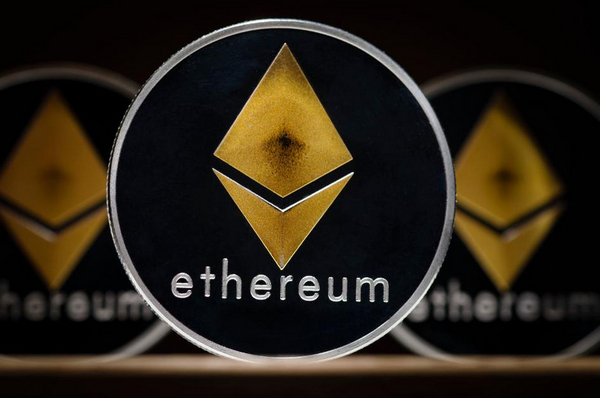-
 Bitcoin
Bitcoin $83,692.3503
0.83% -
 Ethereum
Ethereum $1,817.6072
1.05% -
 Tether USDt
Tether USDt $0.9997
-0.01% -
 XRP
XRP $2.1571
4.64% -
 BNB
BNB $597.9442
0.92% -
 Solana
Solana $121.3486
4.34% -
 USDC
USDC $1.0000
0.01% -
 Dogecoin
Dogecoin $0.1701
3.73% -
 Cardano
Cardano $0.6627
2.07% -
 TRON
TRON $0.2366
-0.80% -
 Chainlink
Chainlink $12.9968
1.79% -
 UNUS SED LEO
UNUS SED LEO $8.9254
-4.67% -
 Toncoin
Toncoin $3.2910
-5.61% -
 Stellar
Stellar $0.2571
-0.87% -
 Avalanche
Avalanche $18.2770
1.18% -
 Sui
Sui $2.2536
2.53% -
 Shiba Inu
Shiba Inu $0.0...01238
1.05% -
 Hedera
Hedera $0.1630
0.81% -
 Litecoin
Litecoin $83.8930
0.33% -
 Polkadot
Polkadot $4.0032
-0.63% -
 MANTRA
MANTRA $6.2613
-0.60% -
 Bitcoin Cash
Bitcoin Cash $303.7265
-0.19% -
 Bitget Token
Bitget Token $4.5099
0.36% -
 Dai
Dai $1.0001
0.01% -
 Ethena USDe
Ethena USDe $0.9990
-0.06% -
 Pi
Pi $0.6727
25.93% -
 Hyperliquid
Hyperliquid $12.0801
5.29% -
 Monero
Monero $216.8337
0.33% -
 Uniswap
Uniswap $5.9215
0.58% -
 OKB
OKB $51.4710
9.89%
Popular science: What kind of currency is Ethereum (ETH)? How to obtain Ethereum (ETH)?
Ethereum, unlike Bitcoin, serves as a platform for developing and deploying decentralized applications, using smart contracts that execute contracts automatically, eliminating third parties and the risk of fraud.
Oct 03, 2024 at 01:54 am

1. What is Ethereum (ETH)?
Ethereum (ETH) is a decentralized blockchain platform that allows developers to build and deploy decentralized applications, also known as dApps. Unlike Bitcoin, which is primarily used as a store of value and medium of exchange, Ethereum's primary purpose is to provide a platform for smart contracts.
2. What Are Smart Contracts?
Smart contracts are self-executing contracts that run on the Ethereum blockchain. They enforce and verify the negotiation or performance of a contract, eliminating the need for intermediaries or the risk of fraud.
3. How to Obtain Ethereum (ETH)?
There are several ways to obtain Ethereum (ETH). These include:
* **Purchasing ETH on Cryptocurrency exchanges:** Exchanges such as Coinbase, Binance, and Kraken allow you to purchase ETH using fiat currencies or other cryptocurrencies.
* **Mining ETH:** Mining involves using specialized computer hardware to solve complex mathematical problems and verify transactions on the Ethereum blockchain. Successful miners are rewarded with ETH tokens.
4. Uses of Ethereum (ETH)
Ethereum is used in various applications, including:
* **Decentralized Finance (DeFi):** DeFi platforms allow users to access traditional financial services such as lending, borrowing, and asset management in a decentralized manner.
* **Non-Fungible Tokens (NFTs):** NFTs are unique digital assets that represent ownership of collectibles, art, or other items. They are stored on the Ethereum blockchain and can be traded or sold.
* **Gaming and Virtual Worlds:** Ethereum is used to create virtual worlds and games where players can interact, own digital assets, and earn rewards.
5. Ethereum's Value
The value of Ethereum (ETH) is primarily driven by its utility as a platform for developers and its increasing adoption across various industries. Factors that influence its price include:
* Network usage and transaction volumes
* Regulatory developments and adoption by institutions
* Competition from other blockchain platforms
* Market sentiment and overall demand for cryptocurrenciesDisclaimer:info@kdj.com
The information provided is not trading advice. kdj.com does not assume any responsibility for any investments made based on the information provided in this article. Cryptocurrencies are highly volatile and it is highly recommended that you invest with caution after thorough research!
If you believe that the content used on this website infringes your copyright, please contact us immediately (info@kdj.com) and we will delete it promptly.
- title: Dogecoin (DOGE) Shows Resilience Despite Bitcoin (BTC) and Altcoin Market Downturn
- 2025-04-05 18:20:12
- Fartcoin (STPT) Down After Explosive Rally as Investors Take Profits
- 2025-04-05 18:20:12
- NodeOps Network Unveils Innovative Pre-Sale Price Discovery Mechanism
- 2025-04-05 18:15:12
- MIND of Pepe Presale Closes On $8 Million – Next Crypto To Explode?
- 2025-04-05 18:15:12
- The Next Bitcoin Treasury Company May Not Be a U.S. Tech Giant
- 2025-04-05 18:10:12
- Market Greed Turns to Bloodbath as Nearly $300M Worth of Perpetual Futures Positions Get Liquidated
- 2025-04-05 18:10:12
Related knowledge

What is Ethereum’s Slashing mechanism and how to punish malicious behavior?
Feb 20,2025 at 03:08am
Key PointsOverview of slashingDifferent types of slashing in EthereumIncentives and consequences of slashingIdentifying and reporting slashed validatorsOngoing discussions and potential improvementsEthereum's Slashing Mechanism: Punishing Malicious BehaviorEthereum's slashing mechanism is an essential tool for ensuring network security and punishing mal...

What is the verifier node of Ethereum and how to become a verifier?
Feb 19,2025 at 06:00pm
The Verifier Node of Ethereum: A Comprehensive GuideKey Points:What is a Verifier Node?How to Become a Verifier NodeResponsibilities and Rewards of a Verifier NodeMinimum Requirements for Becoming a Verifier NodePotential Difficulties in Running a Verifier Node1. What is a Verifier Node?A Verifier Node is an independent entity on the Ethereum network th...

What is Ethereum’s staking, and how to participate and earn money?
Feb 19,2025 at 04:37pm
Key Points:Understanding Ethereum's Staking MechanismSteps to Participate in StakingBenefits and Rewards of StakingSecurity and Risk ConsiderationsTechnical Requirements and Hardware OptionsPotential Challenges and Troubleshooting TipsFAQs on Ethereum StakingWhat is Ethereum's Staking?Proof-of-Stake (PoS) is a consensus mechanism used in blockchain netw...

What is Ethereum’s DAO (Decentralized Autonomous Organization) and how does it work?
Feb 20,2025 at 03:12am
Key PointsDefinition and Structure of a DAOGovernance and Decision-Making in DAOsBenefits and Use Cases of DAOsChallenges and Limitations of DAOsWhat is Ethereum's DAO (Decentralized Autonomous Organization) and How Does It Work?Definition and Structure of a DAOA Decentralized Autonomous Organization (DAO) is an innovative governance and management fram...

What is Ethereum's multi-signature wallet and how to improve security?
Feb 20,2025 at 02:18pm
Key Points:Understanding the Concept of a Multi-Signature WalletBenefits and Drawbacks of Multisig WalletsRequirements for Setting Up a Multisig WalletStep-by-Step Guide to Generating a Multisig WalletImplementing Strategies for Enhanced Security1. Understanding the Concept of a Multi-Signature WalletA multi-signature (multisig) wallet in the Ethereum e...

What is Ethereum's oracle and how to provide data for smart contracts?
Feb 21,2025 at 01:30am
Key Points:Understanding the concept of oracles in EthereumExploring different types of oraclesDetailed guide on how to provide data for smart contractsAddressing potential challenges and considerationsWhat is Ethereum's Oracle?Oracles are crucial components in the Ethereum ecosystem, enabling smart contracts to access real-world data and off-chain even...

What is Ethereum’s Slashing mechanism and how to punish malicious behavior?
Feb 20,2025 at 03:08am
Key PointsOverview of slashingDifferent types of slashing in EthereumIncentives and consequences of slashingIdentifying and reporting slashed validatorsOngoing discussions and potential improvementsEthereum's Slashing Mechanism: Punishing Malicious BehaviorEthereum's slashing mechanism is an essential tool for ensuring network security and punishing mal...

What is the verifier node of Ethereum and how to become a verifier?
Feb 19,2025 at 06:00pm
The Verifier Node of Ethereum: A Comprehensive GuideKey Points:What is a Verifier Node?How to Become a Verifier NodeResponsibilities and Rewards of a Verifier NodeMinimum Requirements for Becoming a Verifier NodePotential Difficulties in Running a Verifier Node1. What is a Verifier Node?A Verifier Node is an independent entity on the Ethereum network th...

What is Ethereum’s staking, and how to participate and earn money?
Feb 19,2025 at 04:37pm
Key Points:Understanding Ethereum's Staking MechanismSteps to Participate in StakingBenefits and Rewards of StakingSecurity and Risk ConsiderationsTechnical Requirements and Hardware OptionsPotential Challenges and Troubleshooting TipsFAQs on Ethereum StakingWhat is Ethereum's Staking?Proof-of-Stake (PoS) is a consensus mechanism used in blockchain netw...

What is Ethereum’s DAO (Decentralized Autonomous Organization) and how does it work?
Feb 20,2025 at 03:12am
Key PointsDefinition and Structure of a DAOGovernance and Decision-Making in DAOsBenefits and Use Cases of DAOsChallenges and Limitations of DAOsWhat is Ethereum's DAO (Decentralized Autonomous Organization) and How Does It Work?Definition and Structure of a DAOA Decentralized Autonomous Organization (DAO) is an innovative governance and management fram...

What is Ethereum's multi-signature wallet and how to improve security?
Feb 20,2025 at 02:18pm
Key Points:Understanding the Concept of a Multi-Signature WalletBenefits and Drawbacks of Multisig WalletsRequirements for Setting Up a Multisig WalletStep-by-Step Guide to Generating a Multisig WalletImplementing Strategies for Enhanced Security1. Understanding the Concept of a Multi-Signature WalletA multi-signature (multisig) wallet in the Ethereum e...

What is Ethereum's oracle and how to provide data for smart contracts?
Feb 21,2025 at 01:30am
Key Points:Understanding the concept of oracles in EthereumExploring different types of oraclesDetailed guide on how to provide data for smart contractsAddressing potential challenges and considerationsWhat is Ethereum's Oracle?Oracles are crucial components in the Ethereum ecosystem, enabling smart contracts to access real-world data and off-chain even...
See all articles




















































































